$400.00
There are many reasons why someone might study Ghana’s Asante Twi language. Some possible reasons include:
- Personal interest: Some people may be interested in learning a new language simply for their challenge and enjoyment of it.
- Cultural appreciation: Studying a language can help you gain a deeper understanding of the culture and history of the people who speak it. By learning Asante Twi, you can gain insight into the culture and traditions of the Asante people of Ghana.
- Professional reasons: Knowing a second language can be a valuable asset in a variety of professional fields, including education, international business, and social work. If you are interested in working in Ghana or with the Asante people, learning Asante Twi could be helpful in your career.
- Improved communication: Knowing Asante Twi can also help you communicate more effectively with people who speak the language, whether you are traveling in Ghana or interacting with Asante Twi speakers in your community.
Overall, studying Asante Twi can be an enriching experience that can help you gain a greater appreciation for other cultures and improve your communication skills.
Description
Ekua Nyarkoah Mensah- Akan language instructor
As a native Akan speaker and an educator, I seek to unveil the rich linguistic and culture of the Akan to people all around the world. I am very experienced in teaching both beginners and advanced learners. I specialize in creating engaging environments accommodating learners from all walks of life. Whether working with children, adults, or even professionals, I am an expert in creating student-centered Akan lessons that focus on language fluency and grammar. My goal is to help learners grasp the Akan language as quickly as possible.
I am committed to helping students achieve their language goals for their personal enrichment, professional development, or academic success.
Experience
- Linguistic department (Nov, 2023–Present) at University of Ghana – Legon
I am a teaching assistant and also a research assistant. I specialize in teaching the Akan language.
Education
- Bachelor of Arts (Oct, 2019–Sep, 2023) from University of Ghana
- Secondary (Oct, 2016–Jun, 2019) from Aburi Girls’ Secondary school
Course Description
Introductory Twi is a masterclass consisting of eight (8) modules where you will learn the essentials to function in a Twi-speaking environment within a Ghanaian cultural context. You will learn greetings, introductions, and basic conversational skills. You will learn pronunciation, sentence structure and regular verb tenses. Cultural lessons are part of language learning, and you will learn how to speak intelligently about yourself and to find out information from others, how to address different people, proverbs, how to speak about where you are from, where you live and more! Learning activities are appropriate for all ages and will include listening, speaking, reading, role-playing, and writing. You will be expected to reinforce learning between classes by completing homework assignments and by learning and using vocabulary words. A practical assessment of acquired skills concludes the course.
Mfitiaseɛ Nkɔmmɔdie Akan (Twi) Adesua Nhyehyɛɛ
Introductory Conversational Akan (Twi) Course Syllabus
-
Adesuadeɛ a ɛdi kan: Twi Kasa nnyegyeɛ (Sounds of the Twi language), Nsɛmfua afoforɔ (new vocabulary)
-
Adesuadeɛ a ɛtɔ so mmienu: Apɔmuden ho nkyea (asking after one’s health); Mmerɛ ahodoɔ nkyea (greetings for various times)
-
Adesuadeɛ a ɛtɔ so mmiɛnsa: Wo din (Your name)
-
Adesuadeɛ a ɛtɔ so nnan: Baabi a wofiri (Where you’re from); Baabi a wote (Where you live)
-
Adesuadeɛ a ɛtɔ so nnum: Deɛ wopɛ (That which you like)
-
Adesuadeɛ a ɛtɔ so nsia: Deɛ woyɛ (That which you do)
-
Adesuadeɛ a ɛtɔ so nson: Mfeɛ a woadi (The years that you have lived (age)); Wo ho asɛm (About you); Sɛnea wo nipadua teɛ (Physical description)
-
Adesuadeɛ a ɛtɔ so nwɔtwe: Twi Nsɔhwɛ (Twi exam); Awieeɛ dwumadie (Work on final projects)
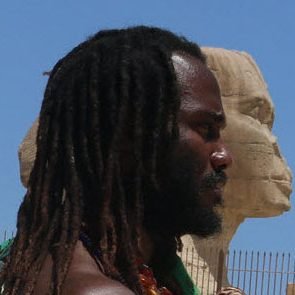
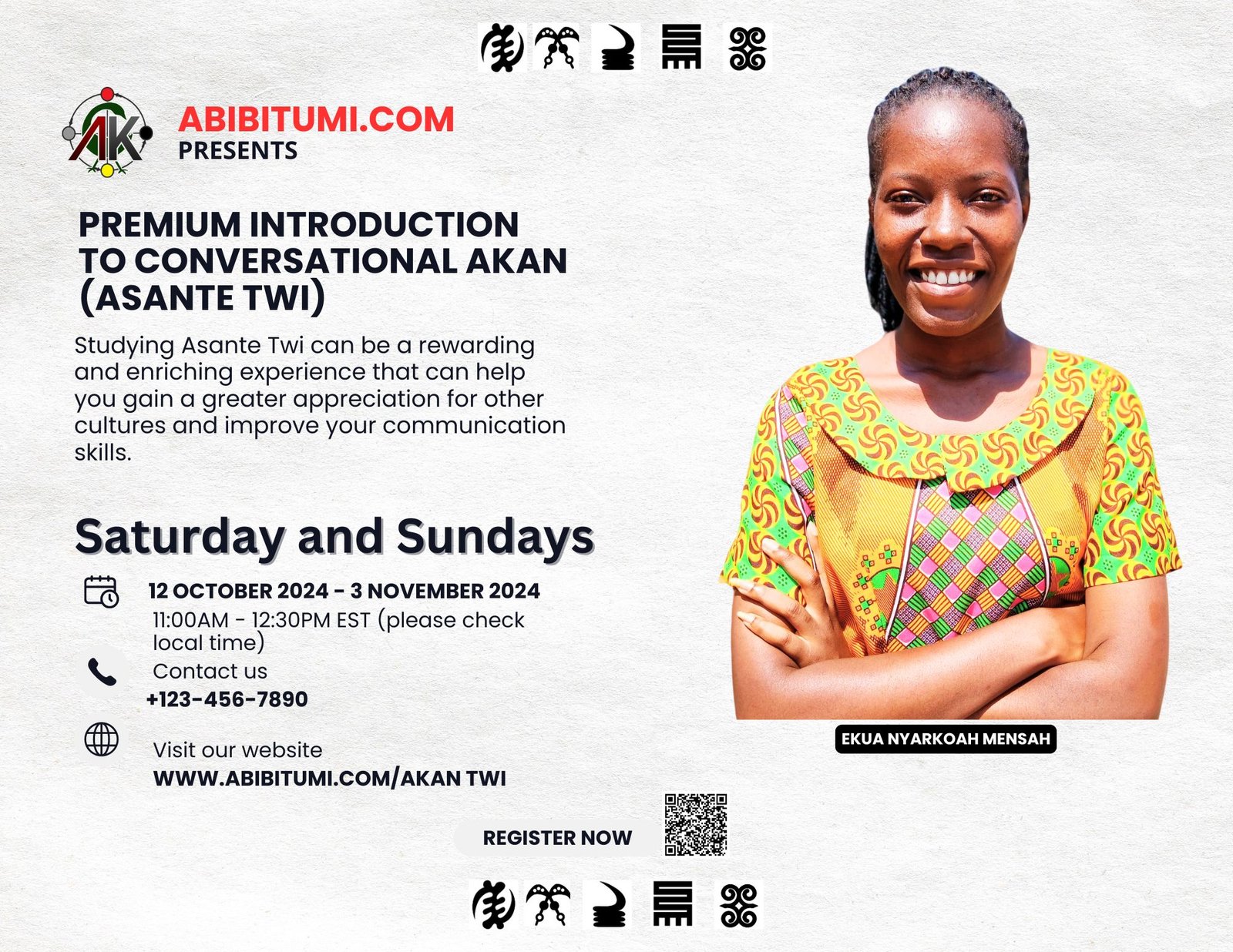
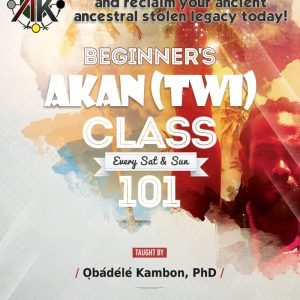
![Premium Intro Conversational Akan (Twi) 101 [Live Streamed] Class Begins October 8, 2022](https://obadelekambon.com/wp-content/uploads/2022/08/PremiumTwi-scaled-1-300x300.jpg)
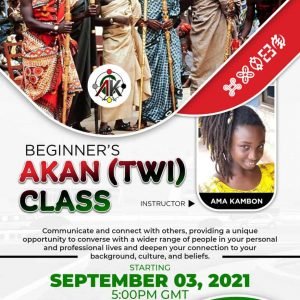
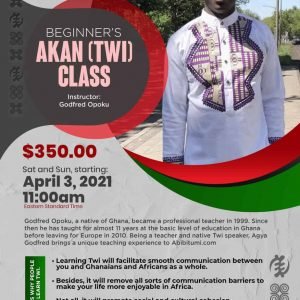
Leave a Reply